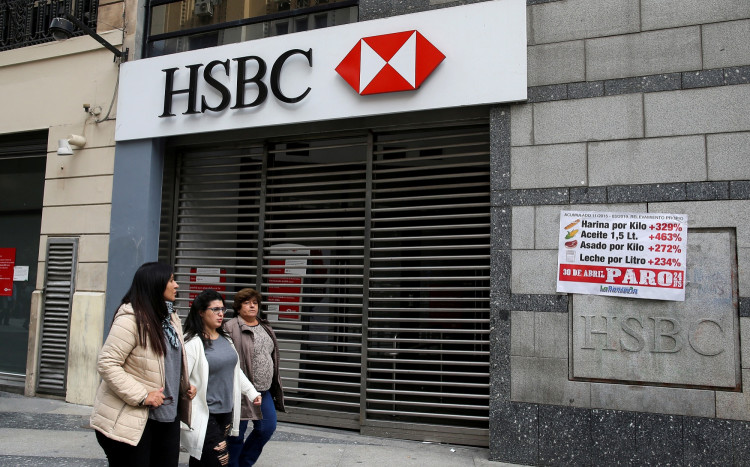International investment bank HSBC missed expectations for its first-quarter earnings, with the bank forecasting additional losses in the coming quarter due to a possible surge in loan defaults amid the economic downturn caused by the coronavirus pandemic.
On Tuesday, the bank reported that its pre-tax profits had fallen by 48 percent year-on-year to around $3.23 billion for the first quarter of this year. The figure was well below average analysts forecast of $3.67 billion. The bank's revenues for the period also fell by 5.1 percent compared to the same period last year to around $13.69 billion.
The bank's net interest margin, a metric of lending profitability, was reported at 1.54 percent for the quarter, which was lower than the 1.59 percent it had reported a year ago. Operating expenses were down by 4.5 percent to only around $7.85 billion for the first quarter. Basic earnings per share for the quarter were pegged at 9 cents, a massive 21 cents lower than the earnings reported over the same period a year ago.
Following the release of its earnings report, HSBC's share prices remained flat. It eventually ended up 0.6 percent higher in afternoon trading on Tuesday. Analysts had pointed out that HSBC's results were unsurprising and most investors had expected as much given the economic fallout of the coronavirus pandemic worldwide.
HSBC chief executive, Noel Quinn, told stakeholders that the economic impact of the pandemic had greatly affected its financial performance for the first three months of the year, particularly in Asia. Its business in Greater China was heavily disrupted during the period, after the virus had first spread throughout the region. Quinn warned that the outlook for the coming quarters still looked bleak and the bank is expecting a surge of bad loans, which may be exacerbated by the lowering of global interest rates by central banks.
In its earnings report, HSBC increased its forecasted credit impairment charges to $3 billion. The bank reasoned that the increase was due to the ongoing impact of the coronavirus pandemic and the continually weakening global oil prices, which have both reduced its economic outlook for the coming quarter.
HSBC added that it also has a "significant charge" related to its exposure in Singapore. The bank did not specifically mention the Singaporean firm Hin Leong Trading Pte but HSBC is reportedly among the companies that Hin Leong had owed money to. The marine fuel trader had essentially collapsed after it had confessed to hiding about $800 million in losses. The financial scandal was brought to light after the company sought judicial management after the sudden crash in global oil prices.





